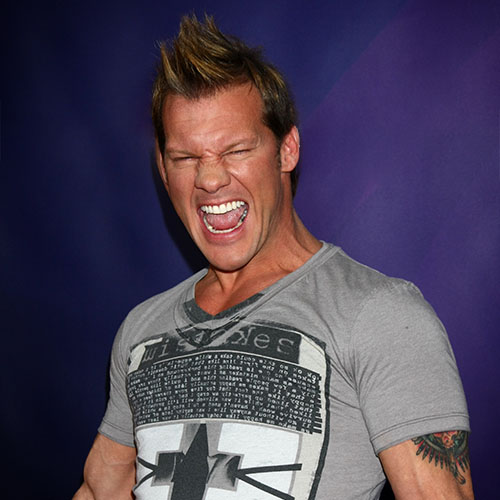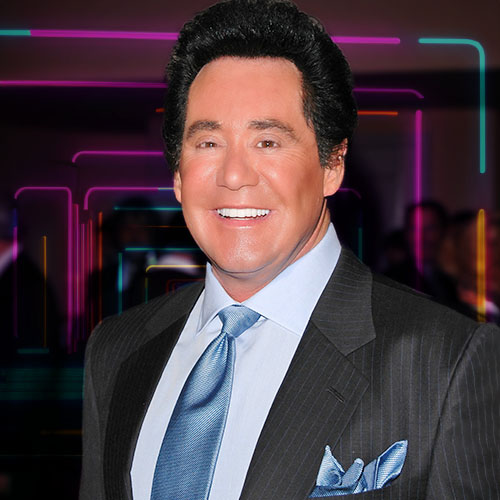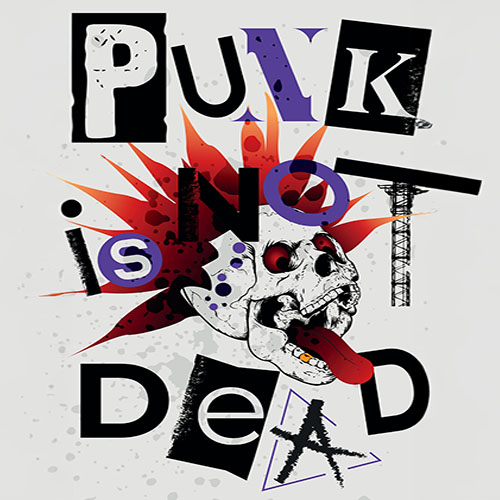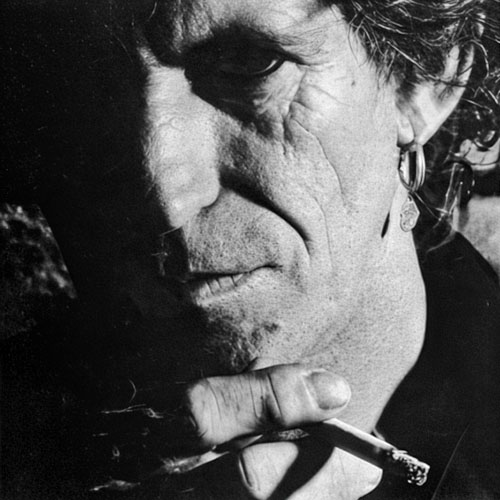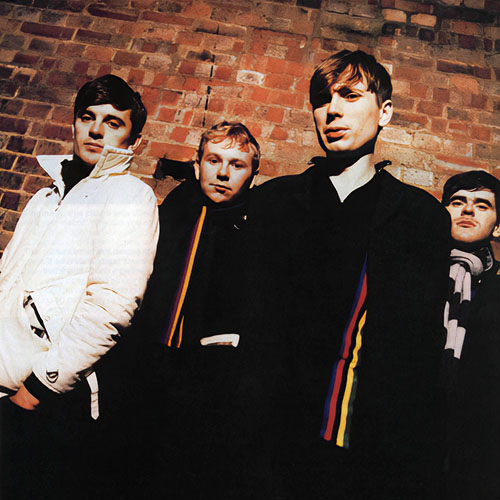“Danny Goldberg is the hottest suit in the record business, but he never tries to anticipate trends — only to “discover genius.”
Turning Talent in to Danny Goldberg
At 44, Danny Goldberg is the new president of Warner Bros. Records, the last major record company to remain American-owned.
He says, “Look, I’m in my mid-forties. I don’t know what music teenagers like.” But he discovered Nirvana and became Kurt Cobain’s spiritual father, delivering the final eulogy at Cobain’s funeral.
In 1992, when Goldberg became an executive at Atlantic Records, which was living off its backlist of Aretha Franklin and Ray Charles, Goldberg went out and signed Stone Temple Pilots and Liz Phair, and their records restored Atlantic to the cutting edge of hip.
Goldberg calls himself “the closer” who makes the deal, but his uncanny string of shrewd signing decisions has made him the hottest “suit” in the record industry. He is modest, and deferential to the creative artist, but he has a sixth sense about what will sell, although he says he never tries to anticipate a trend, only to “discover genius.”
Goldberg is also the most political suit in the industry, the key link between corporate power, liberal politics, and the artists themselves, who trust him.
In 1979 Goldberg was the co-producer and director of the film No Nukes, which featured Bruce Springsteen and Jackson Browne in an anti-nuclear concert.
In 1985, when Congress conducted hearings on whether to mandate warning labels on records, or even more restrictive forms of censorship, it was Goldberg who organized the opposition. He recruited performers like Frank Zappa to testify, while appearing himself and offering a highly sophisticated defense of free expression.
In 1988, when George Bush attacked Michael Dukakis as “a card-carrying member of the A.C.L.U.,” Goldberg again organized the response. He got Burt Lancaster to make a commercial saying he was “proud to be an A.C.L.U. member,” and he convinced Barbra Streisand to donate the profits from one song to the organization.
Goldberg became the synapse between Hollywood and Washington, between the Bill of Rights and Billboard magazine. He was as sophisticated as a professor and as practical as a mayor.
Over the last few years, his reputation has continued to grow because of his unique combination of talents. As he rose in the corporate world to president of Atlantic (and now of Warner Bros.), he was, at the same time, winning the trust of the most gifted and rebellious performers.
In 1992 Nirvana wanted to play a song called “Rape Me” on the high-profile “MTV Music Awards” show. The twenty-something bosses at MTV said that was not possible, that Nirvana had to play another song if they wished to appear.
It was not easy for Nirvana to defy the star-making machinery of MTV, but that was the instinct of their doomed and gifted leader, Kurt Cobain. A lot of people were urging Cobain to compromise, arguing that it would damage the band’s career to antagonize MTV When Cobain asked Goldberg what he should do, Goldberg told him, “Bob Dylan and Neil Young would never capitulate. You shouldn’t either.”
A little later, Cobain’s wife, Courtney Love, said, “Danny Goldberg is the only person Kurt trusts in the world.”
Scott Weiland, the lead singer for Stone Temple Pilots, says, “We met with Danny, and he just put across this feeling that he understood what our fears and freak-outs were, and that he would be there whenever we needed him.”
Whatever Newt Gingrich means by “the liberal counterculture,” Danny Goldberg is it. He grew up in suburban Westchester County, New York, with Pete Seeger records playing in his house. In seventh grade, he organized his friends into a sit-in against Civil Defense air-raid drills. By the time he graduated from high school, in 1967, his heroes were Martin Luther King, Jr., and Robert F. Kennedy.
By the late sixties, he was dabbling in Eastern religions and the drug culture. He admits to doing L.S.D. and speed, and even to getting arrested once. After dropping out of Berkeley — the Bethlehem of the counterculture — he got a job at Billboard and freelanced some writing for The Village Voice and Rolling Stone — the Federalist Papers of the counterculture. At 22 he became the publicist for the heavy metal band Led Zeppelin and helped give them a more serious, accessible image.
Goldberg remains a spiritual person, an activist, a philosopher of liberty. He is still the suit politicians and crusaders call to connect to celebrity star power. He is still the suit musicians go to for moral and political guidance.
But he is also the complete corporatist. He keeps recording new talent like Green Day, winning boardroom power plays, and mastering the new technology — and making the bottom line shine and lifting Time Warner stock.
His political strength is that he is intelligent and principled. His corporate strength is that he knows the creative artist is everything, that he is just a drummer in their band. His secret is how he manages to combine the two.
“Bob Dole and William Bennet are indulging in the time-honored demagogic tradition of beating up on show business to get headlines.”
How is technology going to affect popular music? How are we going to be hearing music in ten years? Will we be hearing it out of a computer?
The biggest thing about technology in art, to me, is not how it’s delivered but how it’s created, and it’s easy to create music that’s of technical quality that people can digest so that almost any person with a thousand dollars can put together something that, if people like it, can be heard all over the world. So where technology really has a role in art is that it democratizes the access of artists to a mass public.
The delivery side of technology is interesting to us in the business and everything, but whether it’s delivered through CDs or cassettes or vinyl, the fundamental experience of listening to an album is not that different. It’s just incremental conveniences and technical improvements. If it was delivered by computer, it would be another convenience factor, but the fundamental relationship of the artist to the public I don’t think is changed by the delivery. But it is changed when a kid can, you know, buy something for a few hundred dollars and play around with it, get some friends together in the metaphorical garage, and create a song that the whole world can hear. So the creative side of technology has created a lot more access to people, whereas it used to be very expensive to make a record, and you had to have these big machines and pay a lot of union musicians. Now almost anyone can make a record, whether it’s going to be liked or not — at least they have a chance to make it and get it out there.
What’s going to be the next technological advance? We’ve gone from records to tapes to CDs. Is there something that’s going to come in ten years?
A lot of people think that the delivery of music will be possible in ten years or so over the computer lines, yes. There’s already a primitive version of it — it just takes a long time to do it and it’s not particularly efficient. But clearly, technology is going in the direction where music will be delivered over computer lines.
Will it be cheaper?
I hope not [laughs]. You know, I gotta make a living. And so do the artists …. It will democratize, with its diversity and availability. The big thing is the creative spirit that moves the artists. But it’s going in the direction that I think will cause more diversity.
As the online delivery of albums becomes possible, bands will be able to gain access to millions of people without going through record labels or radio stations. Will this change the way the major labels work, or do you see this as more of a problem for retailers?
First of all, regardless of how rapidly online delivery of music develops, there will always be a place for retailers. Many people, particularly teenagers, like to get out of the house, go to a public place where other music fans also go to acquire music, talk to knowledgeable salespeople, et cetera.
Secondly, I don’t accept the premise that some have advanced that the primary function of major labels is as distributors. Labels function as the financial risk takers, giving artists advances which allow them to live while writing and recording, and paying for a wide array of marketing costs, including the production of videos and the subsidization of tours to get artists into areas before they have enough fans to make touring economically viable on its own.
More to the point, no matter what the delivery system of music, there is going to remain the phenomenon of thousands of artists vying for the public’s attention — a public which on a mass scale only has an appetite for several dozen new artists per year. The. expertise, clout, staffing, and money to expose artists and music to the appropriate audience in the appropriate way will be in the future — as it is today — the primary distinguishing characteristic of record companies. Finally, artists like having people to talk to that understand their unique challenges. Some artists want or need direct A & R. [artists and repertoire] help, and others want experienced and appropriate help and advice in dealing with a process that is becoming more — not less — complex.
A number of artists, including Prince and Metallica, have filed suit to get out of long-term contracts. What does this mean for the industry? Are long-term multi-album contracts going to become a thing of the past? Or does George Michael’s loss against Sony mean that the power is still with the major labels?
I understand that artists, like anyone else, are always going to be seeking every avenue to get paid as much as possible for what they do. Threatening lawsuits based on the California labor law has become a tool for certain artists in certain situations. According to that law, personal-service contracts can’t be enforced for more than seven years, and although the law apparently calls for damages to be paid to record companies for albums undelivered under contracts that supposedly would expire after the seven years, no one knows what those damages would be, since no one has ever actually tested the law by going through a trial on an actual lawsuit. Several lawsuits have been filed as negotiating tactics to improve existing deals, and those suits get publicity when they are filed.
The record-company side of the story is that we are asked to take financial risks on artists with little or no following, and we are frequently asked to be willing to lose money, not just on one, but on several albums by artists that later become successful. And we know that more than 75 percent of brand-new artists that are signed by majors will never make money for any record company. The only way to justify these risks is to have a long-term interest in the artist’s career. Otherwise we could only afford to promote albums with instant hit singles, which would enormously narrow the diversity of available music.
“Rating are absurd…. I don’t see any reason why you would rate lyrics [on popular songs] and not rate every book.”
How do you assess the social responsibility of this generation of artists? Is this generation avoiding its social commitment as artists compared to the artists in the sixties, when Dylan was young, and with such artists as Stevie Wonder and Peter, Paul, and Mary?
It’s always dangerous to generalize, but I think in ’92, the effort that MTV made in Rock the Vote was the first time-since ’72, when 18-year-olds first were able to vote-it was the first time ever that the turnout went up among 18- to 21-year-olds. And the only explanation for that, I think, was the Rock the Vote campaign, which was started by record-company executives, and a lot of rock artist people like R.E.M. and others participated, and MTV gave it a lot of airtime.
Do you think that artists have a special social responsibility in this era?
Every human being has the responsibility to care about other people. You know, of those to whom much is given, much is expected, and a lot is given to artists in the way of fame, adulation, and, in some instances, money. So they all have the inherent human obligation that everybody has to their fellow humans. And in general, I think successful artists do a better job of being socially conscious than successful insurance people and successful people in other businesses and other professions. I think there is something about artists that, on average, is a little more sensitive to other people, a little more liberal. Not just in this country, but all countries around the world. But they’re still a mixed bag. Some of them are very selfish; some of them are more unselfish. But in the rock part of the business, which is the part I know best, the nineties have certainly spawned a lot more socially conscious artists than the eighties did.
Like who?
Well, I think R.E.M., Nirvana, Pearl Jam, the whole phenomenon of Lollapalooza, where this tour this summer has all these booths with all different kinds of environmental organizations and human-rights organizations and civil-liberties organizations giving out all this information. Kurt Cobain, on his liner notes of Insecticide, telling his audience, “If you’re a sexist or a homophobic, please don’t buy our record.” I never heard of any artist telling people not to buy their records for any reason before that. So I think at least there’s a cluster of artists in the nineties that are very into that. They remind me of some of the seventies artists like Jackson Browne, the Eagles, Bonnie Raitt. These things go in cycles.
You have been called the spiritual father of Kurt Cobain. Do you think if he had lived, he would have become historically as politically significant as artists like Dylan or Harry Belafonte?
I don’t know. He had strong views politically in his gut, particularly on things like prejudice. He did a number of benefits …. He did a Rock for Choice benefit, he did a “No on Nine ” benefit in Oregon, which was against the anti-gay initiative. But primarily, Kurt was a poet and a musician and not somebody that I thought would have wanted to get on the soapbox. But he was certainly happy to use his status and fame to support a general progressive agenda.
Your company, Time Warner, has been specifically singled out by Bob Dole and William Bennett for some of the rap records it sells. Dole, addressing Time Warner executives, asked, “Is this what you intended to accomplish with your careers? You have sold your souls, but must you debase our nation and threaten our children as well?” How do you respond to this kind of criticism?
I don’t think that either Bennett or Dole has any sincere connection to or passion for popular music. I believe they’re indulging in the time-honored demagogic tradition of beating up on show business to get headlines.
Does this make you fear a period of censorship under the conservative Republicans now in power?
Liberals and Democrats were not so supportive of free expression either. Some of the hearings on TV shows and rock lyrics and a lot of others were driven by Democratic politicians. So it’s a funny mix. Free speech is a weird issue that cuts across party lines. You’ve got libertarian conservatives and you’ve got social-engineering liberals. I think the public is pretty much into free speech, even though there’s a lot of people that are offended by certain things, and there’s a lot of indications that there’s a majority that wants free expression ….
Look at the right wing …. Some of the most violent and sexy shows are on Fox. Well, who runs Fox? Rupert Murdoch, who is a conservative Republican. So the free-speech thing is not owned by either party. Nat Hentoff wrote a book, Free Speech for Me but Not for Thee, which really is mostly about anti-free-speech feelings on the left. It’s a funny issue, and if you believe in free speech, you’ve always got to keep your eyes open, because there is always a tendency to feel that you could make ugly problems go away by stifling ugly speech. But I’m not so sure that the election is going to have an impact on that issue as it pertains to the music business.
Is your view that you are an absolutist on free speech and there is nothing that should be suppressed?
Yes. I think things should be criticized. I myself have criticized ugly and offensive speech, both in rock lyrics and life, but I don’t believe anything should be suppressed, no.
So the best way to deal with hate speech is through more free speech?
Yes. Criticize it, discredit it. I don’t think you can accomplish anything by pushing it underground. After World War II, in the Soviet Union, it was actually illegal to print anything anti-Semitic because they identified that with the hated Nazi enemy. You had 40 years of that, and you had this terrible anti-Semitism that bred in that country, whereas in America you were able to have Nazis march in Skokie, Illinois, and Jews have done better in this country than any other country. So there is no evidence that repressing ugly speech represses ugly behavior. If there were, we’d all have to look at it differently. But we have hundreds of years of human history to look at, and the most violent and intolerant societies have been those that also repressed free speech and burned books and so on.
This society has an awful lot of problems — the way women are treated, the way minorities are treated, the violence, and so on. But I’m not persuaded that entertainment is the reason for it. I think that entertainment primarily reflects things. Entertainment is not, and should not be, exempted from criticism. Over the course of time, criticism of certain styles or themes can make them more unpopular or unfashionable, and that kind of influence is healthy. Racism and other things are much less prevalent in entertainment than they used to be. But this did not come about by picket lines or by boycotts, but by an authentic evolution of public taste. I am very nervous about critics who want to change entertainment without having the patience to convince the public.
“A great band… will be discovered, but you have to be willing to have a cast-iron stomach to make it through the process.”
You kind of led the response of the creative community in 1985 when there was an attempt to go after the record industry What did you learn from that experience about the people who wanted to do the censoring and the degree to which the music industry and music creators responded to that threat?
I think a lot of people that want to restrict speech or label things are very sincere, and I thought Tipper Gore was very sincere, and I grew to like her enormously. I just disagreed with her about the particular approach to social problems. I think movie ratings are fairly meaningless. I think they’re absurd, because I don’t think they really do much to make for a better society. They lean irrationally, in my opinion, toward worse ratings for sex than for violence. However, I think a G rating is a useful thing to know as a parent of young kids. I mean, something that has absolutely no sex, violence, or four-letter words is a nice category to understand when you have very young children. But beyond that, I think it’s really meaningless. But it’s something the movie industry decided to do, and that’s their business.
Song lyrics are much more problematic, however. Even if you accept the notion of movie ratings because they’re based on at least quasi-objective criteria — whether or not there is nudity, for example, and whether or not there is blood, and specific four-letter words — mostly the word fuck — that they try to keep track of. Rating lyrics is totally subjective, except for the so-called seven dirty words. I always say that if they limit it just to the seven dirty words, as absurd as that would be, at least it’s an objective criterion. There’s either the word fuck in something, or there is not, and if people want to know that in advance, you have a little F But other than that, no two people will interpret lyrics the same way. It’s analogous to me to books or magazines. I don’t see any reason why you would rate lyrics and not rate every book. And I think that you would see a tremendous opposition from authors about who is going to make those determinations.
But if you say that warning labels could be helpful to parents of “very young children, ” what about the lyrics of someone as sexually explicit as Liz Phair — who you signed? Do the parents of preteens or teenagers have the right to know that their child is listening to someone singing explicitly about masturbation?
I don’t think that all parents have the same values, and I don’t know what criteria record companies could use for lyrics that would help all parents.
I have two young children myself, and I try to do some homework about films. TV shows, books. or movies that my kids want to be exposed to. There are all sorts of journals and reviewers whose opinions I trust, as well as asking my friends, and this way I get a sense relevant to my particular sensibility. There’s nothing wrong with the Catholic church telling Catholics what they think is harmonious with their religious beliefs, or any other religious or secular group issuing reviews or ratings for their own members. So there are a lot of ways that parents can become more informed on what their kids are listening to.
Parents do not have a right, however, to expect that record companies can magically create criteria for all parents, because the diversity of standards is far too great in this country. It’s hard enough with movies — but at least you have some universal concepts like nudity and blood to deal with.
Aren’t you afraid that this new conservative crowd in Washington will use family values to go after rap artists on your label or PBS?
Well, PBS they’re definitely going to go after, because that involves government funding. So it’s a totally different type of political issue. And that’s really regrettable. Not that PBS to me is a panacea, but it’s better to have it than not to have it. I don’t think there’s any question they’re going to go after PBS, because that involves tax dollars and, like the N.E.A. issue, that brings in a whole different political atmosphere than the free marketplace. But there’s a lot of Republicans that are very into deregulating — they’re pure libertarian, free-marketplace Republicans.
There’s a liberal-conservative alliance for free speech, and there might be a similar liberal-conservative alliance for repression.
That’s exactly right. There are some academics in the liberal community, and the communitarian types, who really believe that part of what’s fraying the social fabric of the country is ugly and gross speech. They may not be in favor of government censorship, but they’re in favor of boycotts and pressuring networks, retailers, people in shopping malls, or whatever, against offensive videos or lyrics or whatever.
Do you think they have a right to boycott, that that’s part of free speech?
No question. Boycotts are all right. and it’s also all right to criticize a boycott. Just because somebody has a right to do something doesn’t mean it’s a good idea. Donald Wildman believes it’s a good idea for people to boycott sponsors of “Saturday Night Live” because they use the word penis in some of their comedy routines. I would defend to the death his right to call for such a boycott, and I would also vigorously oppose his goal, which is to interfere with what people actually want to see on TV, the normal system of the free market and ratings and what people like, and impose pressure on advertisers from people who never watch “Saturday Night Live” in the first place.
How do you feel about Jesse Jackson telling advertisers not to buy time on Bob Grant’s show because Bob Grant is a bigot? What is the proper response to hate radio?
Love. The real question is, what is the proper response to hate? Hate radio is a manifestation of hate.
Pressuring Grant’s sponsors to boycott him — is that the best response we can come up with?
I don’t think it’s the best response, because by legitimizing that tactic we could inadvertently empower the most intolerant right-wing groups when they try to stop any type of unconventional entertainment or broadcast. I do, however, think it’s really sad that it’s usually mostly blacks who protest anti-black racism, mostly Jews who protest anti-semitism, mostly women who protest sexism, et cetera. We need to keep fighting, as you have always done, for a moral consensus that opposes any kind of bigotry or stereotyping of any kind of group. People on the left have to be careful not to stereotype conservatives or Christians as well.
I certainly can empathize with the frustration people have that Grant’s creepy ideas continue to have a following. Once again, criticism to make Bob Grant more unpopular is great. But to pressure advertisers that otherwise would want his audience — I think it’s a dangerous precedent and it doesn’t really deal with the moral problem, which is that his audience needs to directly hear why hate and bigotry are evil.
“It’s wonderful to appreciate the past, but nothing is as alive as whatever is happening at the moment.”
Let’s go back to music. Where is music headed?
In a hundred different directions.
That’s the exciting thing about music. You have the Benedictine chants selling millions of records. You have country music having a great renaissance of diversity. You’ve got the Three Tenors doing well. You’ve got rap entering its third or fourth era. You’ve got rock-n-roll entering its 15th era. You’ve got poetic singer-songwriters like Tracy Chapman or Liz Phair emerging. You’ve got more women than ever making records. You’ve got Spanish music …
Is this a golden era of popular music?
I don’t know. I always think whatever era we’re in, you should look at as a golden era. You should appreciate whatever’s happening when you’re in the moment, because really what’s most exciting in any moment is the music of the time. It’s wonderful to appreciate the past, but nothing is as alive as whatever is happening at the moment.
How do you stay in touch? You’re 44 years old, but the target audience is — what? — 15- and 16-year-olds. How do you know who to give a contract to, who to promote? How do you stay in touch with the cutting edge?
I try to have a network of people that are younger that go to clubs, that read fanzines, that listen to the independent records. Very often now, a lot of the young artists, particularly in rap and rock-n-roll and to a certain extent rhythm and blues, will make their own records, sell them locally and to a store in Gainesville, Florida, or Mobile, Alabama, or Albany, New York. And very quickly it becomes apparent that they’re touching a nerve.
How do they come to your attention?
Musicians themselves are often the most astute in recognizing new talent. All the record companies have people that call on the stores and the radio stations to find out what’s happening. And the trick is to have enough people out there to keep track of what’s going on so that you can identify it early. Another way is, you look at what certain reviewers, music critics, fanzines, and other musicians are saying. It’s basically a matter of trying to have an objective sense of what’s affecting young people.
How often do you go out to clubs yourself just to hear new bands?
Not very often. I’ll go when everyone tells me. My job, as they say, is to be “the closer,” not to be the one who picks the music, but to be the one who will try, after we’ve decided to go after something, to be part of the process of convincing the artist to come with our company.
Are there any John Hammonds discovering Leadbelly in a bar anymore?
I’m not sure that he discovered Leadbelly. Someone probably told him about Leadbelly. I think he’s a great man, and I probably will never equal his accomplishments. I idolize him, but the reality is that Leadbelly was the key to Leadbelly, not John Hammond. And Kurt Cobain was the key to Nirvana, not me. The key is, what the artists do is what drives it all, and all the rest of us just try to see a parade walking down the street and get in front of it and lead it. But it’s already marching, and it’s out of the heart and soul and spirit of genius. The record business at its best is primarily about recognizing genius, supporting genius, and then creating the greatest possible awareness of the genius.
But we all know that when Aretha Franklin was at Columbia, they tried to make her a jazz singer or a pop singer. It was only when Jerry Wexler got into a studio with her that Aretha became Aretha. So perhaps you’re denigrating your role a little too much.
Well, I can’t do what Jerry Wexler did. Jerry Wexler really produced the records, and he really participated in making the records in a way that I don’t. My particular path has been more the rock-n-roll path, which is more auteur-and artist-driven, and then delegating to the executives in R. & B., country, and pop, which is the more producer-driven. But when you ask is it corporate … To a certain extent, as long as there has been electronic media, there has been some corporate involvement. I’m sure Al Jolson had to know somebody at a record company to record him, and so forth. Somebody got him his first Broadway show, somebody got him in the newspapers. But I think it’s really up to the spirit of the artists. There are some artists that are more fiercely individualistic, there are some that just want to make money — just like any other category of people.
So you think any good band is probably going to get discovered?
No. Any great band. A good band is a dime a dozen. It has to be super-great. A great band who wants to be discovered will be discovered, but you have to be willing to take rejection, or have a cast-iron stomach, to really make it through the process. It’s like Ruth Gordon said years ago, in another context, “It’s not enough to have talent to make it in show business. You have to have a talent for having talent.” But there are a lot of odd, quirky, iconoclastic artists who have been able to beat the system and get discovered. Beck recently — I mean, he made this record for a few thousand dollars called “Loser,” and it got picked up by a tiny little label, and it got played on one station, and it got requested until it was a couple of million records. He’s a very odd character. Nirvana’s first record, Bleach, was recorded for $800, put out by a tiny little independent label called Sub Pop, in Seattle, that was funded with a few thousand dollars initially, and that was the record that launched a whole new era of music. All the early rap hits were made independent I y and launched for very little money. So in that respect, it’s a more democratic medium, certainly, than the other electronic media.
Is radio closer to the grass roots than VH1 and MTV in terms of artists and new trends?
There are so many radio stations. You have tiny little college stations in place that can start a record out, and then stations in smaller markets. So there’s a kind of diversity that’s possible in a radio universe like that, as opposed to a few 24-hour cable channels that are on all over the country. Even in the days of radio, it was always easier to break a record in Cleveland than it was in New York, because the stakes were higher in New York …. And you look at a station like KROQ in Los Angeles. They’re truly visionary. I mean, they’ll play records that aren’t even on major labels and make people’s careers, just because they hear it before the record companies do. But there aren’t very many stations like that, but the fact that there is even one is fabulous.
So you don’t really try to guess right on the next trend? You can just sit back and go artist by artist and week by week, and not have to guess what’s coming?
It’s really all about artists. If you see something that works, you try to get something that will at least appeal to the same audience. Green Day happened, who happens to be on Warner Bros., so then Offspring happens, which is another of the kind of post-Nirvana punk-driven rock bands that have made a success. So that definitely becomes a little more marketable. But I think the big thing is to just look for genius and not worry too much about trends.
It would be interesting to come back to these interview topics with Danny Goldberg not that satellite radio has become pervasive and anyone can post a video on YouTube. Then again, one might learn his opinions on these topics via his own website. Should one be more politically inclined, having recognized the censorship fears in this article, you might enjoy Mr. Greenberg’s much more recent thoughts along those lines in a popular publication in that genre. We took the time for that one (although through publication on his own site). Smart people can give us all hope.
















